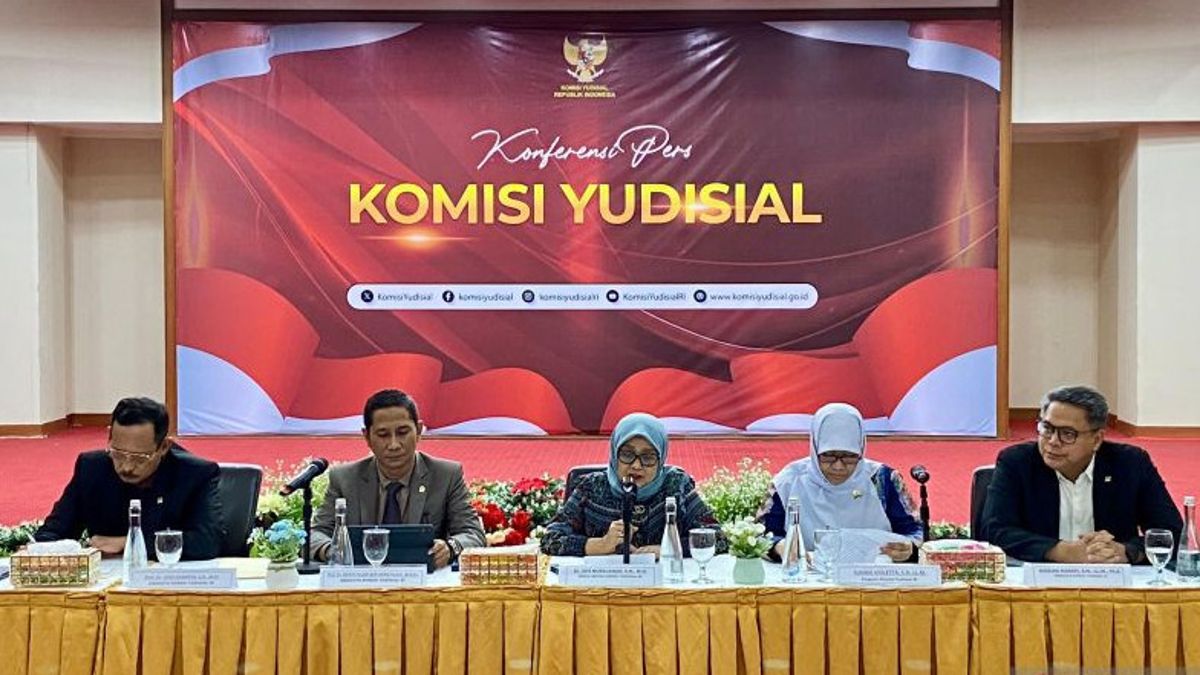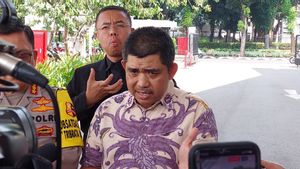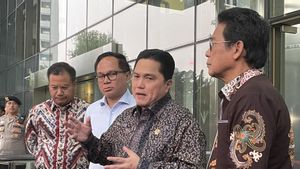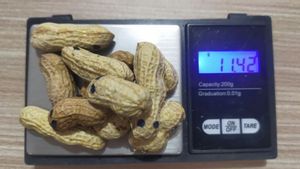The Judicial Commission (KY) sent an additional certificate to Commission III of the DPR RI which contained clarification regarding the selection of candidates for Supreme Court justices and candidates for ad hoc HAM judges at the Supreme Court (MA) in 2024.
"The “The letter was delivered this morning, of course, this step was taken to rebuild communication with the DPR, to correct the misperception," said Deputy Chairperson of KY Siti Nurdjanah during a press conference at the KY RI Office, Jakarta, Antara, Friday, September 6.
The letter, which was signed by the Chairman of KY Amzulian Rifai, basically stated that the selection of candidates for Supreme Court justices and candidates for ad hoc HAM judges had complied with the laws and regulations and the decisions of the Constitutional Court concerned.
"“KY will continue to coordinate with the DPR RI so that the additional information in the letter that we sent to the DPR this morning can be taken into consideration, so that the candidate proposed by KY can be approved to be appointed as the supreme judge," said Siti.
On Friday, July 12, KY announced nine names that passed the selection of candidates for Supreme Court justices and three names of candidates for ad hoc human rights judges. Then, the names were submitted to the DPR RI for a fit and proper test.
However, Commission III of the DPR RI, Wednesday, August 28, agreed not to approve of the 12 names recommended by KY. Factions in parliament stated that there was an error in the selection mechanism because KY passed the ineligible candidate.
"There are several things that we have arrested for the rejection of all candidates for Supreme Court justices submitted by KY to the DPR: there is an issue that candidates for Supreme Court justices do not meet the three-year requirements as high judges, there is also the issue that candidates for Supreme Court justices do not meet the 20th anniversary as judges,” KY member Sukma Violetta said at the press conference.
Sukma explained, in selecting candidates for Supreme Court justices, KY also referred to the Constitutional Court Decision Number 53/PUU-XIV/2016. Based on this decision, the Constitutional Court stated that the requirements for candidates for Supreme Court justices from the path of career judges, one of which was that they had at least 20 years of experience as judges, including being high judges.
"This means that even if one day becomes a high judge, including if the judge is not placed in a high court, but is placed in units in the Supreme Court, for example in the Supreme Court Supervisory Agency, in the secretariat and so on, then the career judge has met the requirements as a candidate for Supreme Court judge," he explained.
Meanwhile, regarding the issue of prospective Supreme Court justices in the special tax administration (TUN) who do not meet the 20-year experience requirements to become judges, KY refers to the Constitutional Court Decision Number 6/PUU-XIV/2016 and Number 26/PUU-XXI/2023.
KY member Binziad Kadafi explained, the Constitutional Court's Decision Number 6/PUU-XIV/2016 clarifies the status of a tax court judge in conjunction with a judge at the TUN High Court, the High Court in the General Court environment, and the Religious High Court.
According to him, the Constitutional Court's Decision Number 26/PUU-XXI/2023 clarifies the status of a tax court judge because it mandates the unification of roofs so that guidance to the Tax Court, including guidance to judges, is carried out fully by the Supreme Court.
In addition, when referring to the empirical situation, according to KY there is no judge in the Tax Court who fulfills the experience of being a judge for at least 20 years. This is because the Tax Court was only formed in April 2002 and the minimum requirement to become a tax judge is 45 years.
"In fact, it can be said, for the next seven years, there will be no judge of the Tax Court who meets the requirements to be a judge for 20 years," said Kadafi.
In addition, KY considered the caseload to be quite high. According to KY data, of the 7,979 cases in the MA TUN Room in 2023, 88.65 percent of them were tax reconsideration cases (PK).
Meanwhile, the Supreme Court judge of the TUN Room is seven people and only one has specifications for expertise in the tax field.
"In fact, the tax PK case that goes to the Supreme Court, with the number that dominates the case that enters the TUN Room, it requires very specific expertise to be able to check and decide it competently, well, and consistently," said Kadafi.
SEE ALSO:
The English, Chinese, Japanese, Arabic, and French versions are automatically generated by the AI. So there may still be inaccuracies in translating, please always see Indonesian as our main language. (system supported by DigitalSiber.id)
Most Popular Tags
#Prabowo Subianto #donald trump #gaza #hasan nasbi #Pope Francis DiesPopular
29 April 2025, 21:54

















